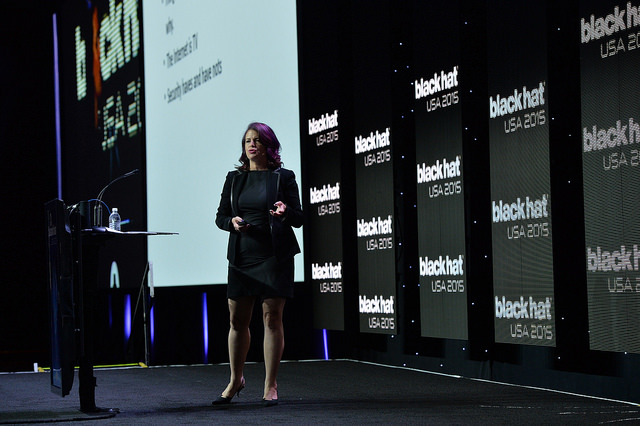I hope there is a John Brown roaming around somewhere in Turkey—one who hates supremacy of Turks over the Kurds as much as John Brown detested the slavery of blacks in America.
Brown, an ardent abolitionist, determined to free the slaves through armed insurrection—which he tried in 1859 by raiding the U.S. Armory and Arsenal at Harpers Ferry, Virginia.
Brown hoped to employ weapons and ammunition captured to arm slaves and overthrow the U.S. Government, but his attack failed and Brown was tried for treason and promptly hanged.
One man in Turkey who comes close to Mr. Brown is Kemal Pir, a Laz native of Black Sea region in northeast Turkey, who died of a hunger strike in 1982 in Diyarbakir Military Prison while striking a blow against the Turks for the right of Kurdish self-determination.
Kurds will honor his noble memory forever.
But Turks themselves gifted to the world Ismail Besikci, a distinguished Turkish scholar and iron-willed disciple of truth, who spent seventeen years in jail for daring to tell his fellow Turks that there are Kurds in Turkey.
Yes, there was a time in Turkey, in the memory of people still living, when it was safer to say the world is flat, than to whisper—in dire fear—there are Kurds in the country!
Poor Turks had been brainwashed to view Kurds as evil incarnate and anyone who said anything positive about us suffered a cracked head or worse at the nearest police station.
When rehabilitation through torture didn’t work, stubborn souls were tossed into darkened dungeons for years, sometimes decades.
But Mr. Besikci never wavered. Like the famed Galileo who declared the sun was the center of our solar system, not the earth, he insisted that Kurds were a part of Turkey—and its original inhabitants no less.
That could only mean prison!
The Turks, to rub it in, made sure his torturers were turncoat Kurds.
But it didn’t work. The man of steel drove Turks nuts by courageously sticking to his principles.
John Brown also stuck to his principles.
Sitting atop his own coffin in the wagon driving him to the gallows, Brown still cheerfully championed the right of four million slaves to be equal citizens of the United States.
American poet Henry David Thoreau said John Brown “was like the best of those who stood at our bridge once, on Lexington Common and Bunker Hill, only he was firmer and higher principled.”
French novelist Victor Hugo urged that Brown not be hanged, arguing:
“There is something more frightening than Cain Killing Abel, and that is Washington killing Spartacus.”
Brown, just before the noose swathed his neck on December 2, 1859, declared he was “now quite certain that the crimes of this guilty land will never be purged away but with blood.”
That bloody carnage came shortly thereafter with the terrible country-splitting civil war of 1861-65, pitting family against family, followed by the abolition of slavery through the 13th Amendment.
Turkey, of course, is nothing like America, but if poets are to be believed, it is no different than the America of John Brown’s day, saddled with the horrendous weight of the subjugation of one people to another.
The exquisitely sensitive Euripides knew it and said that when one is not free to express one’s thoughts, he or she is in a state of perpetual “slavery.”
Well, 20 million Kurds are firmly mired in that state—since they are barred from practicing the politics of Kurdish identity in public.
Subjects don’t even need a country, Turkish politicians arrogantly assert!
The reason: “We are their protectors,” proclaimed Prime Minister Ahmet Davutoglu on July 26, 2015.
Such arrogance is nothing but an echo of the American attitude after John Brown raided the Federal Armory at Harpers Ferry: Slaves are not equal to whites.
Indeed, two years before Brown’s raid on Harpers Ferry, no less than the U.S. Supreme Court decreed in its notorious Dred Scott decision that blacks, whether free or slave, were not citizens.
If we substitute “Kurds” for “blacks,” not much has changed today in America—even though a black man occupies its highest office.
President Obama is just as impervious to the plight of the Kurds today—as America was to the quandary of blacks 156 years ago.
That is why we need Turks, who may be potential John Browns, to force politicians to halt the deplorable domination of 20 million Kurds by some 50 million Turks.
However, as an admirer of Mahatma Gandhi’s nonviolent techniques, honesty compels me to note that John Brown’s raid triggered the death of one Marine and six civilians.
So I cannot in good conscience urge a Turkish John Brown to utilize murder to fight evil. Or to quote the timely words of Selahattin Demirtas, the co-chair of Peoples Democracy Party (HDP), “You can not clean blood with blood.”
But I can—and strongly do in good conscience—urge them to throw monkey wrenches into the treacherous Turkish war machine.
The Turks who are now bombing southern Kurdistan should simply unload their munitions on uninhabited mountains.
The Americans, who are aiding the Turks with intelligence data for “high-value targets,” should guide them to flocks of sheep or goats.
After all, to some Turks in influential positions, we are the same as sheep or goats.
But you Americans could at least sleep better at night if you did not spill innocent blood at the altar of Turkish bigotry.
Republished with the author’s permission.










![The memorial at Ground Zero, Nagasaki. Photo by Dean S. Pemberton (Own work) [CC BY-SA 4.0-3.0-2.5-2.0-1.0], via Wikimedia Commons](http://occupyworldwrites.org/wp-content/uploads/2015/08/640px-NagasakiHypocentre.jpg)


